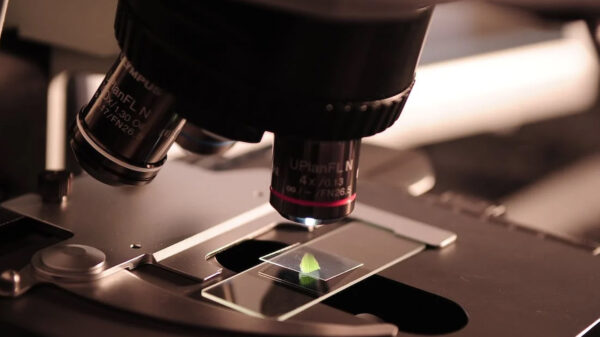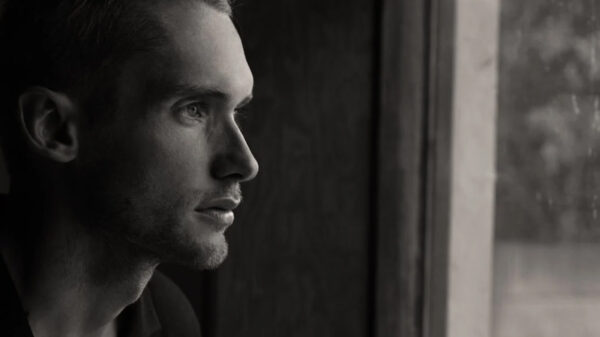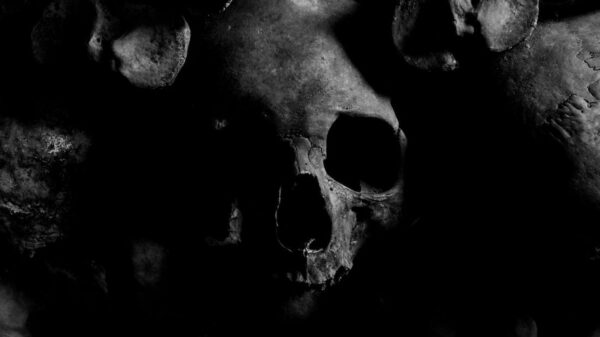In an article for Space.com, science writer Mike Wall outlines the evidence for the “Big Bang” and offers possible explanations for the cause of the beginning of the universe.[1] Wall argues that modern science shows clear evidence that the universe began at a point of singularity in the distant past. However, Wall attempts to maintain a position of naturalism in explaining the cause of the Big Bang. In adhering to naturalism, Wall is forced to come to conclusions that do not withstand scrutiny.
Naturalism “conceives the universe as a closed, self-contained system that- at least in principle- can be fully described using naturalistic explanations”[2] and as a result “does not affirm the supernatural- [including] God, gods, ghosts, immaterial souls, spirits.”[3] A naturalistic perspective is difficult to adhere to in discussing the beginning of the universe, as it requires the natural world to explain its own creation. Wall offers two possible explanations of how the universe could originate out of nothing. First Wall offers quantum mechanics as a possible solution, explaining that immediately following the point of singularity, the entire universe would be small enough to exist at the quantum level.
In a later article, Wall expanded on this explanation by asserting, “On a subatomic scale, random fluctuations can produce matter and energy out of nothingness.”[4] Alternatively, Wall also suggests that the universe may not have actually begun at the Big Bang, but rather was following a cyclical pattern in which the universe repeatedly contracts and expands. Thus, the Big Bang would simply be the universe expanding after its most recent contraction. Although Wall does not land on one explanation in particular, he seems to believe these are both viable answers. Wall quotes theoretical physicist Andy Albrecht as saying “I base my hope on the fact that cosmology has been so successful.”[5] This approach closely mirrors the a “god-of-the-gaps”[6] mistake wherein Wall simply has faith in future science as the answer to all questions.
Wall’s possible explanations, quantum mechanics and the cyclical model, both have serious explanatory problems. Further, there is reason to believe that even future science will not provide meaningful answers as to the origins of the universe. With regard to quantum mechanics, philosopher William Lane Craig points out that quantum events cannot explain the emergence of the universe out of nothing, “All of these claims [regarding quantum mechanics] take the word ‘nothing’ to be a singular term referring to something, for example, the quantum vacuum or quantum fields. These are physical realities and therefore clearly something.”[7]
Using quantum mechanics or the cyclical model as an explanation relies on a key problem: both imply the existence of an infinite amount of time in the past (where the quantum field or an endless amount of cycles have always existed). Unfortunately, it appears impossible that a universe could have both an infinite past and future; the universe must have had a beginning at some point even in the explanations offered by Wall.[8]
In the pursuit of true knowledge about reality, one must be open to considering evidence from beyond naturalistic, scientific explanations. Share on XWall’s adherence to naturalism in attempting to explain the universe’s origins limits him in both explaining the cause of the Big Bang, as well as explaining necessary conditions such as fundamental laws of nature found in our universe.[9] The explanations offered by Wall do not explain the true beginning of the universe, but rather simply push the starting point back prior to the Big Bang. Even if the universe started earlier, its ultimate beginning would still require explanation. As a result, classic theistic “Kalam cosmological argument”[10] still stands and offers a better explanation for the beginning of the universe. If the universe had a beginning, then it had a transcendent, personal cause for its beginning. Not only does the beginning deserve explanation, but so do the fundamental laws of nature.
In a 2015 essay agnostic scientist Alexander Vilenken admitted as much, writing, “A beginning of what?… And determined by what or whom?…We have no viable models of an eternal universe…Why are these laws the ones we have? We have no way to address this mystery.”[11] However, the inability to answer this question only exists so long as one is required to hold a naturalistic worldview. A theistic worldview provides a rational answer to the questions posed by the scientific evidence.
Ultimately, naturalism falls short in answering these and many other important questions. In the pursuit of true knowledge about reality, one must be open to considering evidence from beyond naturalistic, scientific explanations. The most reasonable answers to questions of origins lie with theism, not naturalism.
[1] Mike Wall, “The Big Bang: What Really Happened at Our Universe’s Birth?” Space.com, last modified October 21, 2011. https://www.space.com/13347-big-bang-origins-universe-birth.html.
[2] Melissa Cain Travis, Science and the Mind of the Maker (Eugene: Harvest House Publishers, 2018), 18.
[3] Richard F. Carlson, “Naturalism” in Dictionary of Christianity and Science, ed. Paul Copan, Tremper Longman III, Christopher L. Reese, and Michael Strauss (Grand Rapids: Zondervan, 2017), 469.
[4] Mike Wall, “The Big Bang Didn’t Need God to Start Universe, Researchers Say,” Space.com, last modified June 24, 2012. https://www.space.com/16281-big-bang-god-intervention-science.html#:~:text=the%20 Universe%20%7C%20Space-,The%20Big%20Bang%20Didn’t%20Need,to%20Start%20Universe%2C%20Researchers%20Say&text=SANTA%20CLARA%2C%20Calif.,of%20something%20coming%20from%20nothing.
[5] Mike Wall, “The Big Bang: What Really Happened at Our Universe’s Birth?”
[6] Angus J.L. Menuge, “God of the Gaps” in Dictionary of Christianity and Science, ed. Paul Copan, Tremper Longman III, Christopher L. Reese, and Michael Strauss (Grand Rapids: Zondervan, 2017), 333.
[7] William Lane Craig, “Big Bang Cosmology,” Reasonable Faith, accessed October 8, 2021. https://www. reasonablefaith.org/writings/scholarly-writings/the-existence-of-god/big-bang-cosmology.
[8] William Lane Craig, “Has the Multiverse Replaced God?” Reasonable Faith, accessed October 10, 2021. https://www.reasonablefaith.org/writings/popular-writings/existence-nature-of-god/has-the-multiverse-replaced-god.
[9] J.P. Moreland, Scientism and Secularism (Wheaton: Crossway, 2018), 141-142.
[10] William Lane Craig, “The Kalam Cosmological Argument,” Reasonable Faith, accessed October 12, 2021. https://www.reasonablefaith.org/writings/popular-writings/existence-nature-of-god/the-kalam-cosmological- argument.
[11] Alexander Vilenkin, “The Beginning of the Universe,” Inference: International Review of Science, vol. 1, issue 4, last modified October 23, 2015, https://inference-review.com/article/the-beginning-of-the-universe, quoted in Melissa Cain Travis, Science and the Mind of the Maker (Eugene: Harvest House Publishers, 2018), 51.
Jimmy Wallace is a detective who holds a BA in Psychology (from UCLA) and an MA in Theology - Applied Apologetics (from Colorado Christian University).









































Joseph Miller
December 3, 2021 at 8:46 am
Richard Bube in his book The Human Quest: A New Look at Science and the Christian Faith, said that when a scientist makes a statement about something which he cannot measure, he is no longer making a scientific statement. It becomes a ‘world view statement’. It’s a good book.
Gerald Britton
December 5, 2021 at 7:24 pm
The universe does not need scientists to tell us how it started, says God